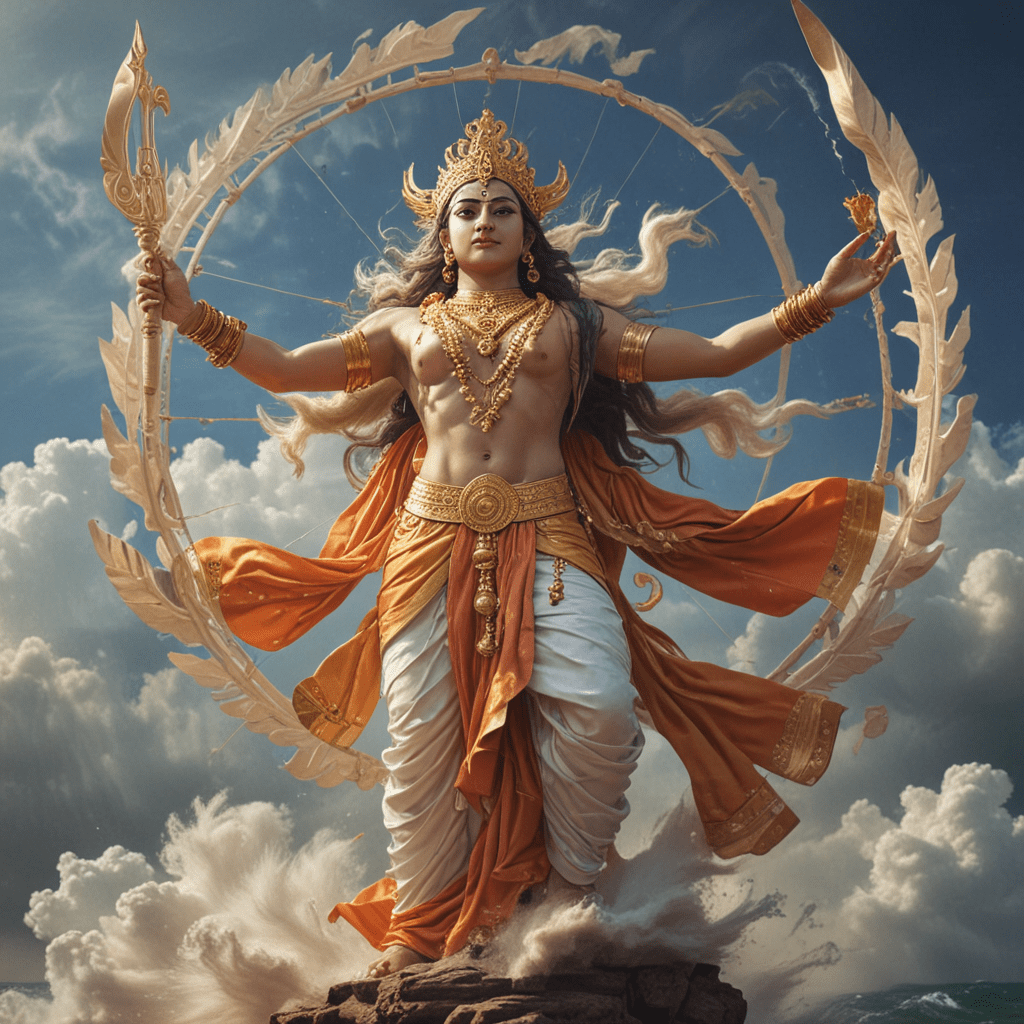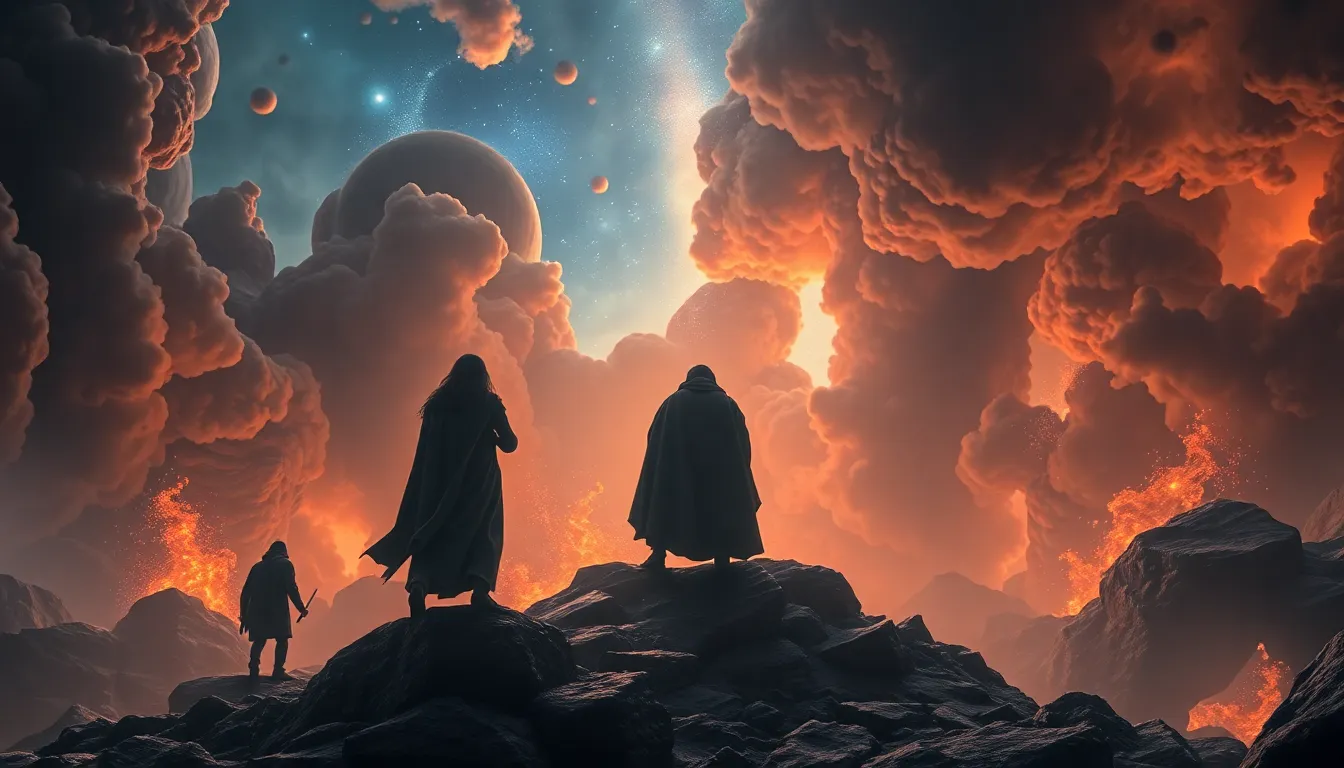The Myth of Vayu: The God of Wind in Hindu Mythology
Introduction
In the vast tapestry of Hindu mythology, Vayu stands as the formidable God of Wind, Breath, and Sky. He is a revered deity, occupying an exalted position within the Hindu pantheon. Vayu's influence extends far beyond his celestial domain, permeating both the physical and spiritual realms.
Birth and Origins
According to ancient scriptures, Vayu was born to the revered sage Rishi Kashyapa and his wife Aditi. An alternative creation myth narrates his emergence from the very breath of the creator deity Brahma. This divine lineage underscores Vayu's profound connection to the fundamental elements of existence.
Attributes and Symbolism
Vayu embodies the swift and ethereal nature of wind. He is the patron deity of movement, purification, and the vast expanse of the sky. His name, derived from the Sanskrit root "va," signifies "to blow" or "to move." Vayu's association with speed and agility has led to his depiction as a fleet-footed deity, traversing the heavens with ease.
6. Vayu in the Epics
Vayu plays a pivotal role in both the Ramayana and Mahabharata, two of the most renowned epics in Hindu mythology. In the Ramayana, he is the father of Hanuman, the devoted monkey warrior who aided Lord Rama in his quest to rescue Sita. Vayu's divine intervention proves instrumental in Hanuman's miraculous feats, including his ability to cross the ocean and search for Sita.
In the Mahabharata, Vayu assists the Pandavas, the righteous brothers, in their battle against the evil Kauravas. He grants Arjuna, the Pandava archer, with the powerful weapon, the Pashupatastra. Vayu's support and guidance contribute to the ultimate victory of the Pandavas over their adversaries.
7. Vayu as a Guardian
Vayu is revered as a protector of both the gods and mortals. He guards the celestial realm from threats and shields the Earth from destructive forces. As the guardian of the four directions, he ensures the stability and harmony of the cosmos. Moreover, Vayu is believed to uphold dharma, the cosmic order, and punish those who violate its sacred principles.
8. Vayu's Mount and Weapon
Vayu's majestic mount is the legendary Garuda, the king of birds. Garuda is depicted as a colossal eagle with a golden body and the wings of a falcon. As Vayu's loyal companion, Garuda carries him through the skies and aids him in his celestial duties.
Vayu's primary weapon is a discus, a circular blade that symbolizes his swift and powerful nature. The discus is believed to possess both defensive and offensive capabilities, enabling Vayu to vanquish his enemies and protect those under his care.
9. Worship of Vayu
As a revered deity, Vayu has numerous temples dedicated to his worship across India. Devotees seek his blessings for good health, prosperity, and protection from evil forces. Rituals and offerings are performed to honor Vayu and invoke his divine favor. In some traditions, Vayu is also worshipped as a household deity, ensuring harmony and well-being within the home.
10. Legacy and Cultural Significance
Vayu's presence in Hindu mythology and artwork is enduring. He is depicted in numerous sculptures, paintings, and literary works, symbolizing freedom, movement, and divine power. Vayu's legacy extends beyond religious traditions, influencing cultural practices and artistic expressions. In modern times, his image continues to inspire and resonate, reinforcing his timeless significance in Hindu mythology.
FAQs
Q: What is Vayu's role in the creation of the universe?
A: Vayu is credited with separating heaven and earth, creating the four directions, and distributing the soma drink to the gods, contributing to the cosmic order.
Q: How is Vayu represented in Hindu iconography?
A: Vayu is often portrayed as a handsome deity with a green or golden complexion, holding a discus and riding on the back of Garuda.
Q: Why is Vayu considered a benevolent deity?
A: Vayu is revered for his role in purifying the atmosphere, dispelling harmful forces, and supporting life on Earth. He is also known for his protection and guidance of the righteous.



